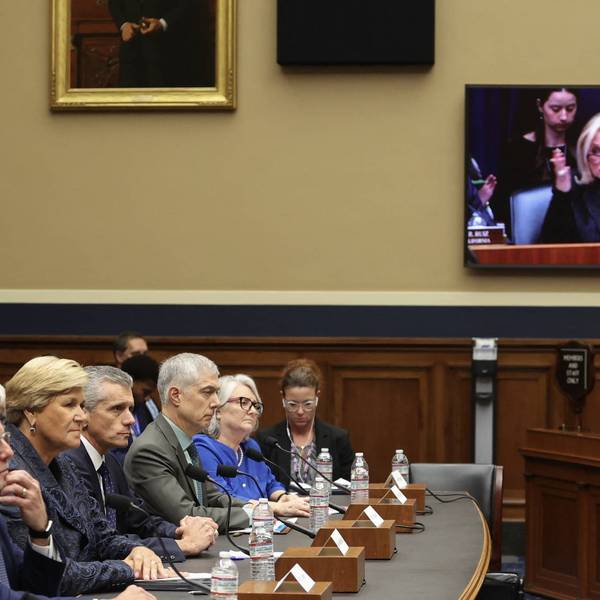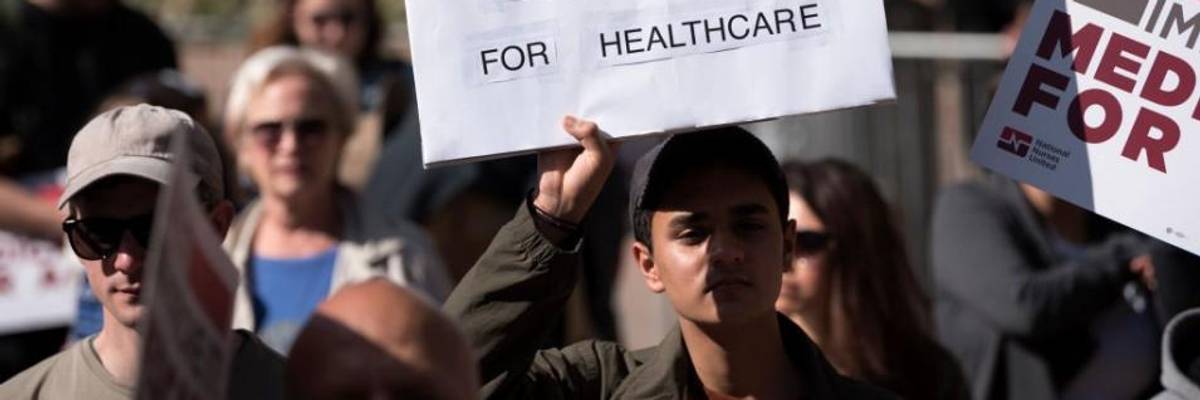The strain that the COVID-19 pandemic is placing on our entire healthcare system is threatening to decimate the primary care sector--the doctor's offices and medical facilities that are the very foundation of any healthcare system.
Just when Americans most need consistent and equitable access to high-quality care, hospitals and clinics are downsizing, furloughing staff, cutting hours or wages, and even closing their doors. The fact that millions of their patients have been losing their insurance coverage adds to the financial strain. Additionally, with many schools closed for much of the spring and many not fully open this fall, the nearly 57 million children nationwide who rely on school nurses for a significant portion of their primary and preventative care are also at risk for limited access to this fundamental pillar of our healthcare system.
The emotional and mental strain is also rising; one survey reports that 12 percent of primary care practice members have left their jobs due to the pandemic.
In order to avoid the catastrophic effects of the hollowing out of primary care for our health and that of the economy, the U.S. should take this opportunity to transform the sector by creating a national program for universal public primary care. This would assure all residents have access to high quality primary and preventative care and that a critical part of our healthcare workforce enjoys stable employment for years to come.
We have been warned for years about impending critical shortages of primary care doctors in the U.S. due to increased demand (from an aging demographic and increases in rates of chronic illness) together with physician burnout. Then, this spring, medical practices were among those that had to cut all but the most urgent medical procedures and lay off staff as other nonessential businesses closed to slow the spread of COVID-19. As the economy has struggled to resume, some healthcare jobs have come back, but the sector as a whole is still down almost 800,000 jobs since February 2020. One-third of primary care physicians say revenue is still significantly down and threatens the viability of their businesses.
As multiple studies have shown, a strong primary care sector can help rein in total healthcare spending and improve population health in terms of everything from life expectancy and all-cause mortality to mental health.
As federal pandemic business aid comes to an end and flu season begins, the pressure on private practices is likely to grow. As Clifford Marks wrote in The New Yorker this summer, the short and long term consequences of primary care facility closures could be massive, "Vaccination rates for children have already begun to fall; patients are missing screenings proven to save lives; prescriptions are going unfilled. Chronic conditions could worsen; life expectancies could drop."
Adding all this to previously existing disparities in access to primary and preventative care, which have been exacerbated during the pandemic, means that a systemic strategy for strengthening and supporting the sector is overdue and more critical than ever.
As multiple studies have shown, a strong primary care sector can help rein in total healthcare spending and improve population health in terms of everything from life expectancy and all-cause mortality to mental health. Investments in primary care are also shown to improve health equity. Together, these improvements in health equity and overall outcomes provide broad economic benefits to society.
A public primary care system could be instituted at the national level as an extension of the Public Health Service Corps which already deploys more than 6,000 medical professionals around the U.S. and globally. Alternatively, states could build on existing county public health departments and school nursing programs to encompass comprehensive, guaranteed primary care services for all.
By removing the profit motive from the US primary care sector, providers could count on stable, salaried positions that would allow them to dedicate their full time and attention to patient care. They would no longer be forced to look for "growth markets" in which to locate their practices or find ways to bill each 15-minute increment of their time. Patients across the country could enjoy access to quality, community-based care, enabling long-term relationship-building with providers.
Public primary care has a long history around the world, from places like Sweden and Norway, where district doctors and nurses have provided primary care services in rural areas since the 1700s, to places like the United Kingdom and Spain, where the vast majority of all healthcare provision is public, and primary care plays a central role in health infrastructure.
Contrast that to the current state of primary care in the U.S., where the COVID-19 pandemic has proved particularly threatening to the viability of small or independent, physician-owned practices that communities have historically depended upon. Overworked, under-protected, and often scrambling to make ends meet, the very doctors, nurses, mental health professionals, pediatricians, and community health workers dedicated to primary care are being abandoned by a system that puts profit above their professional commitment to care for their communities. Meanwhile, the people they serve are being forced to go without their principal contact with the healthcare system.
In the absence of a national effort to assure access to primary care for all, private equity and large health conglomerates are likely to swoop in and buy up practices on the cheap when they are deemed to be in potential "growth markets." This is exactly the sort of consolidation known to drive up healthcare costs (which is why even large employers like Boeing and Walmart have been outspoken in their opposition to healthcare mergers and acquisitions during the pandemic).
Even more damaging to community health, practices in rural areas and disinvested city neighborhoods will likely be left to fail, leaving our most vulnerable communities with less healthcare infrastructure than ever, pushing patients towards more expensive secondary and tertiary care and letting preventative care largely fall to the wayside. The pandemic has already exposed grave inequities in access to care, as well as the social and economic determinants of health that influence morbidity and life expectancy.
In the struggle to survive this pandemic and to begin to knit together a society that has been increasingly divided in order to serve the needs of the market, we can ill afford to allow health inequities to get even worse. Our primary care system is in critical condition, and creating a public system is now an urgently needed medical intervention in order to assure access to essential healthcare services for all.




